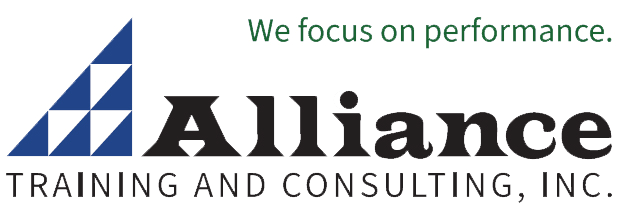Creating Great Workplace Attitudes
By: Dale Mask
It's no surprise that the pandemic has influenced nearly everyone's attitude in some way. From an early age, we're told that attitude is key to success - yet very few people have had training on how to develop a great attitude. There are no high school courses on attitude, no "Attitude 101" in college. So how can an employee improve a negative outlook? And how can a manager help someone shift from a poor attitude to a productive one? In most cases, people simply don't know the how-to’s for developing a great attitude.
A positive attitude is key to success, learning how to create your own positive attitude is essential.
To complicate the issue further, most people with bad attitudes do not believe they have a bad attitude. They feel that anyone in their same situation would be justified in not liking what is happening and would do exactly what they are doing. So, in their mind, it’s really not a bad attitude, it’s a justifiable dislike of something.
Now combine a challenging global market with cutbacks, pink slips, and an increased pressure to perform, it is easy to see why workplace attitudes can turn sour. Plus, today’s business and personal economic issues fuel the corporate rumor mill. Some of the rumors might be accurate, but most are false. Never-the-less, rumors cause people to think the worst. The result is low workplace morale and more bad attitudes. For many employers workplace attitudes may be at an all-time low.
Attitude is an inside job.
Managers dealing with a worker with a poor attitude often seek courses on controlling workplace negativity or how to deal with employees with bad attitudes; these courses are about employee coaching and counseling, performance documentation, and termination issues. Gaining the management skills developed in these courses is important. But the attitude adjustment must come from the employee. The manager cannot change it for them.
In today’s workplace, employees are looking for a credible manager who offers information and direction in a manner that can inspire a feeling of confidence with a positive leadership attitude. But for great workplace attitudes, both the managers and employees must develop positive attitude skills:
| Managers must: | Employees must: |
| 1. Demonstrate enthusiasm | 1. Develop a “Yes I can” attitude |
| 2. Have a clear, concise vision | 2. Have a clear, concise vision |
| 3. Sell the benefits of performance | 3. Think in terms of benefits |
| 4. Tell stories to paint pictures of success | 4. Visualize success |
| 5. Invite participation | 5. Be inclusive, supporting others |
| 6. Radiate optimism | 6. Radiate optimism |
| 7. Encourage everyone | 7. Recognize achievement |
Creating great workplace attitudes is not just the manager’s job - it is everyone’s job.
If you will note in the table above, both lists work together. The manager can do their share, but if the employee does not do their part, the work performance and the workplace will suffer. For all of it to work, manages and employees must learn the keys to developing a great work attitude.
Both managers and employees must:
-
Recognize the importance of attitude
-
Identify attitude origins and influences
-
Apply the principles that lead to positive attitudes
-
Take specific actions that will lead to a positive attitude
-
Develop individual actions plans to achieve a positive attitude
Training is critical because, for most people, these behaviors do not automatically happen. This is especially true in times of crisis and uncertainty. Seminars and workshops specifically designed to help people develop their own positive attitudes can do wonders for workplace morale and improved performance. Creating great workplace attitudes is not just the manager’s job - it is everyone’s job.
© 2025 Alliance Training and Consulting, Inc.
View our Employee Development Courses
